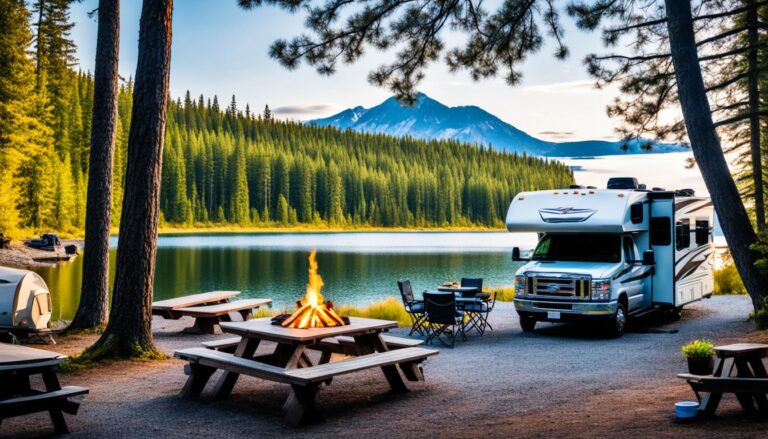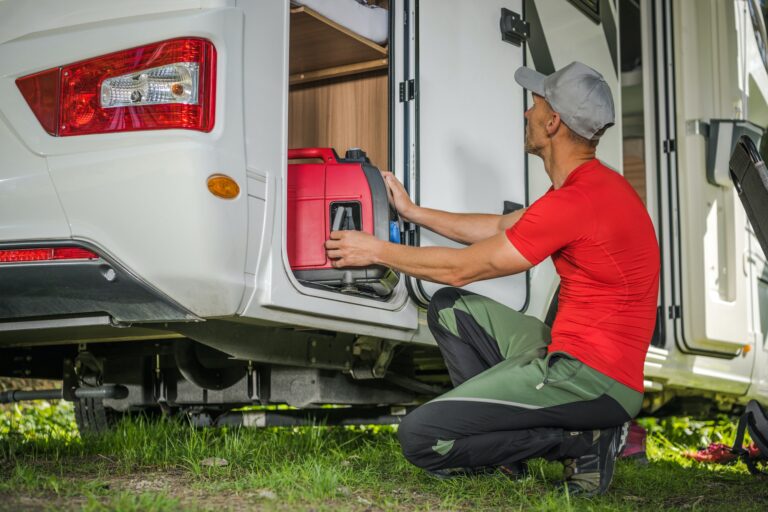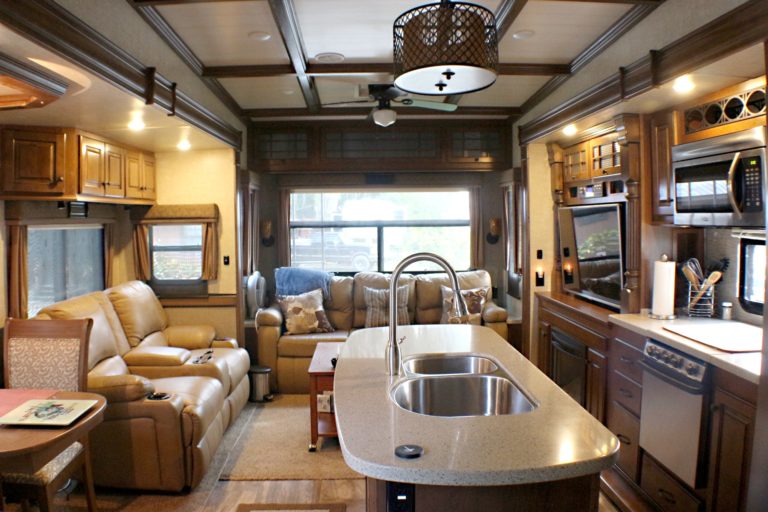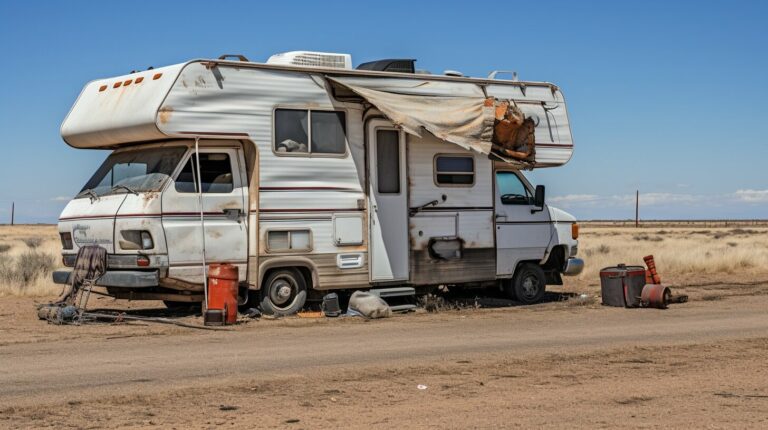Embarking on your first RV trip is an exciting adventure, but it can also be a bit overwhelming. There’s a lot to think about, plan, and prepare before you hit the road. To help you ensure a smooth and enjoyable experience, we’ve created this comprehensive pre-departure checklist, covering everything from trip planning and RV maintenance to packing essentials and safety tips.
1. Planning Your First RV Trip
A successful RV trip starts with thorough planning. Here’s what you should consider when planning your first RV adventure:
- Destination: Choose a destination that appeals to you and your travel companions, taking into account factors such as travel time, distance, and seasonal conditions. For your first trip, consider selecting a location that’s not too far away to get comfortable with driving and maneuvering your RV.
- Route: Plan your route in advance, taking into account the size and capabilities of your RV. Be aware of potential road restrictions, low-clearance bridges, and steep grades. Use RV-specific GPS devices or apps for accurate routing information.
- Campgrounds: Research and book campgrounds or RV parks in advance. Consider factors such as amenities, hookups, and the size of your RV when selecting a site. Be aware that some campgrounds may have seasonal closures or restrictions.
- Activities and Attractions: Research attractions, activities, and points of interest in the areas you’ll be visiting. Create a loose itinerary to help you make the most of your time on the road.
- Budget: Establish a budget for your trip, taking into account factors such as fuel, campground fees, food, activities, and any unexpected expenses that may arise.
2. Preparing Your RV for Departure
Before hitting the road, it’s essential to ensure your RV is in good working order and ready for the journey:
- Perform a thorough inspection: Check the exterior of your RV for any damage or issues that need to be addressed before departure. Look for signs of leaks, cracks, or loose components.
- Check all systems and appliances: Test all systems and appliances in your RV to ensure they’re functioning properly, including the electrical, plumbing, heating, and cooling systems.
- Check tires: Inspect your RV’s tires for any signs of wear, damage, or underinflation. Be sure to check the spare tire as well.
- Check fluid levels: Ensure that all fluid levels are topped off, including engine oil, coolant, transmission fluid, brake fluid, and windshield washer fluid.
- Check brakes and lights: Test your RV’s brakes to ensure they’re functioning properly. Check all exterior lights, including headlights, taillights, brake lights, and turn signals, to ensure they’re working and visible.
- Clean and sanitize: Clean the interior of your RV, and be sure to sanitize all surfaces, especially in the kitchen and bathroom areas.
3. Packing Essentials for Your RV Trip
When packing for your first RV trip, it’s crucial to bring essential items for comfort, safety, and convenience:
- Clothing and Personal Items: Pack appropriate clothing for the weather and activities you have planned. Don’t forget essentials like toiletries, medications, and a first-aid kit.
- Bedding and Towels: Bring sheets, blankets, and pillows for each bed in your RV, as well as towels for bathing and swimming.
- Kitchen Supplies: Stock your RV’s kitchen with cookware, utensils, dishes, and food storage containers. Pack non-perishable food items and plan for grocery stops to replenish perishables.
- Outdoor Gear: Depending on your planned activities, pack items such as camping chairs, a portable grill, hiking gear, fishing equipment, or bicycles.
- Entertainment: Bring games, books, and other entertainment options for downtime at the campsite or during inclement weather.
- Tools and Spare Parts: Pack a basic tool kit, spare fuses, and any RV-specific replacement parts that may be needed during your trip.
- Emergency Supplies: Include essential emergency items such as a fire extinguisher, flashlight, jumper cables, and an emergency roadside kit.
4. RV Safety Tips and Considerations
Before embarking on your first RV trip, familiarize yourself with important RV safety tips and considerations:
- Weight distribution: Be mindful of your RV’s weight distribution when packing. Overloading or uneven weight distribution can negatively impact the handling and performance of your RV.
- Secure items: Ensure that all items in your RV are properly secured before departure to prevent shifting or damage while on the road.
- Know your RV’s dimensions: Be awareof your RV’s height, width, and length to avoid potential clearance issues or navigation challenges.
- Practice driving and maneuvering: If you’re new to driving an RV, practice in a safe, open area before hitting the road. Get comfortable with the size, handling, and blind spots of your RV.
- Monitor weather conditions: Keep an eye on the weather and be prepared to adjust your plans if necessary. Severe weather can make driving an RV more difficult and dangerous.
- Follow proper hitching procedures: If you’re towing a vehicle or trailer, ensure that all hitch components are properly connected and secure. Familiarize yourself with the proper procedures for hitching and unhitching.
- Obey speed limits and traffic laws: Respect speed limits and traffic regulations to ensure a safe and enjoyable journey. Remember that your RV may require more time to accelerate, decelerate, and maneuver than a standard vehicle.
5. Final Pre-Departure Checklist
Before you hit the road, complete this final pre-departure checklist to ensure you’re ready for your first RV adventure:
- Review your travel plans, route, and reservations.
- Conduct a final walk-around inspection of your RV, checking for any issues or concerns.
- Check tire pressure and adjust as needed.
- Double-check all fluid levels.
- Ensure all systems and appliances are functioning properly.
- Confirm that all items in your RV are secure and properly stowed.
- Test your brakes and exterior lights one final time.
- Make sure your RV is properly hitched and connected if towing a vehicle or trailer.
- Verify that all windows, vents, and doors are closed and locked.
- Disconnect and stow any power cords, water hoses, or sewer connections.
- Remove any wheel chocks or leveling blocks.
- Retrieve and stow any campground-specific items (e.g., campground pass, gate key).
6. Additional Tips for a Successful First RV Trip
These additional tips will help you have a smooth and enjoyable first RV trip:
- Be flexible: While planning is essential, be prepared to adjust your plans if necessary. Unforeseen circumstances like weather or mechanical issues may require changes to your itinerary.
- Take your time: Give yourself plenty of time for driving, setting up camp, and breaking down camp. Rushing can lead to mistakes and added stress.
- Ask for help: Don’t be afraid to ask fellow RVers or campground staff for assistance or advice. The RV community is generally friendly and eager to help newcomers.
- Document your journey: Take photos, keep a journal, or create a blog to document your first RV trip. This will help you remember the experience and provide valuable information for future trips.
- Learn from your experiences: After your first RV trip, take note of what worked well and what you would do differently next time. Use this information to improve your future RV adventures.
By following this comprehensive pre-departure checklist and keeping these tips in mind, you’ll be well-prepared for your first RV trip. With proper planning, preparation, and a spirit of adventure, you’re sure to have a memorable and enjoyable experience on the open road. Happy travels!






